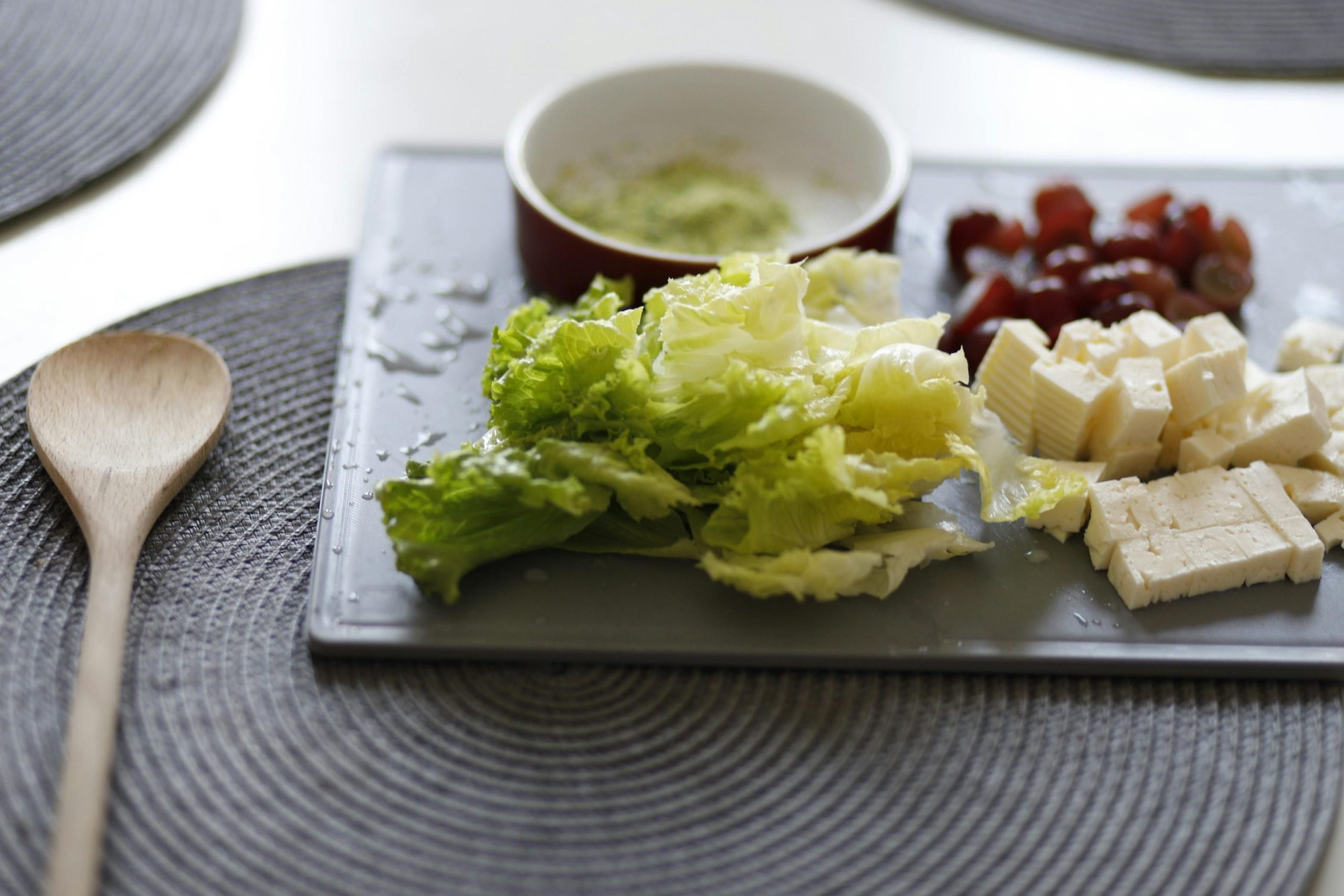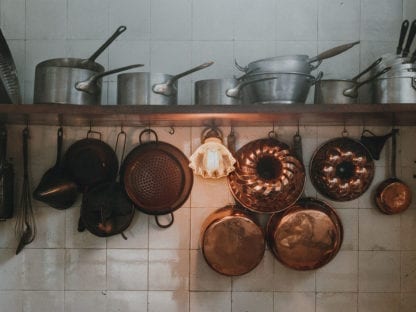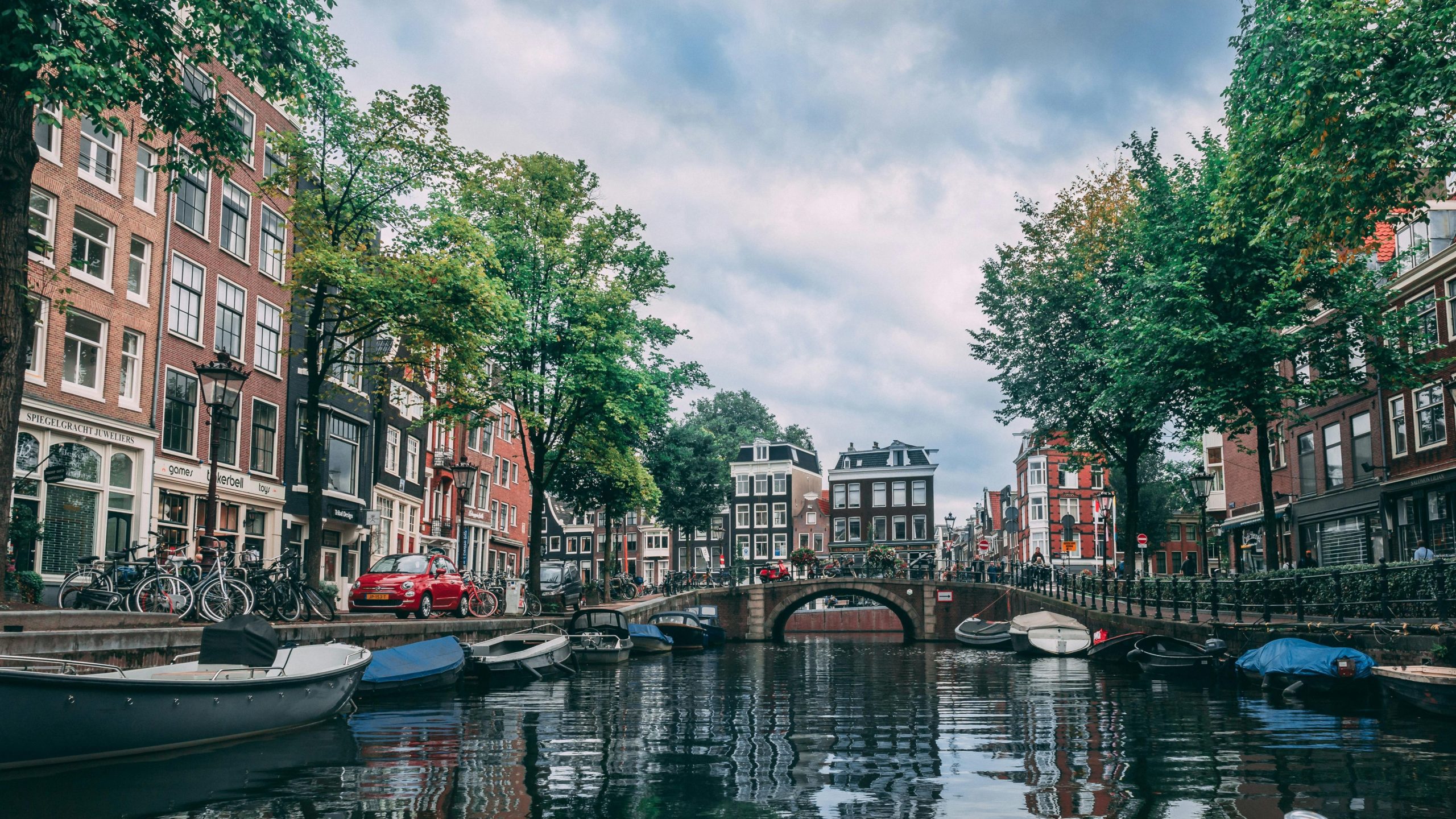Ever wondered how to truly immerse yourself in the culinary heart of a new city?
Finding authentic, local dining experiences can often be overwhelming amidst the vast array of tourist traps.
Food tours offer a curated exploration of a city’s culinary landscape, led by local experts who guide you through a series of dining experiences, from street food to fine dining.
In this blog post, we’ll delve into various types of food tours available globally, discuss how to choose the right one for your tastes, and share tips to ensure you get the most authentic and enjoyable experience possible.
Benefits of Embarking on a Food Tour

Embarking on a food tour offers a myriad of benefits that extend beyond the simple pleasure of tasting new dishes. These tours provide a deep dive into the cultural and historical context of a destination through its cuisine. By participating in a food tour, you not only get to savour authentic local flavours but also gain insights into the traditions and stories that shape the local culinary scene. This enriching experience can transform the way you perceive and appreciate food, turning each meal into a story worth discovering.
Moreover, food tours are designed to connect you with local communities and culinary experts. This interaction not only fosters a deeper understanding of the local culture but also supports local businesses and promotes sustainable tourism. Whether it’s a bustling street food market or a quiet family-owned restaurant, each stop on a food tour helps you connect with the community on a more personal level, making your travel experience both memorable and meaningful.
Preparing for Your Food Tour Adventure

Preparing for your food tour adventure starts with a bit of groundwork to ensure you have the best experience possible. Firstly, research the area you’ll be exploring to familiarise yourself with its culinary landscape. This knowledge can enhance your appreciation of the food and might even help you discover more about the city’s culture and history. Additionally, knowing the area helps you navigate more confidently during and after the tour.
When it comes to what to wear, comfort is key. Opt for comfortable walking shoes and attire suitable for the weather, as food tours often involve a fair amount of walking. Don’t forget essentials like a water bottle to stay hydrated, a hat and sunglasses for sunny days, or a light raincoat for unexpected showers. Equally important is to start the tour with an appetite; avoid eating large meals before your adventure so you can fully enjoy the range of tastings offered.
Choosing the Right Food Tour for You
Choosing the right food tour requires considering several factors to match your personal preferences and expectations. Start by looking at the tour duration and schedule; some tours cover a large part of the day, while others might be just a quick taste of the local cuisine. Additionally, think about the size of the group you’d be comfortable with. Smaller groups often allow for more personal interaction with the guide and fellow food enthusiasts, enhancing the overall intimacy of the experience.
Another important aspect is the type of food the tour focuses on. Whether you have dietary restrictions or a particular culinary preference, it’s crucial to choose a tour that can cater to your needs. Also, consider the price and the value it offers—compare different tours to see which provides the best experience for your budget. Remember to read reviews and testimonials to gauge previous participants’ experiences, which can provide insights into the quality and authenticity of the tour.
Ensuring the Authenticity of Your Food Tour
Ensuring the authenticity of your food tour is crucial for a genuine experience. Start by verifying the credentials of the tour guide; a knowledgeable and licensed guide can significantly enhance the authenticity of your tour. Check online forums, official tourism websites, or local travel authorities to confirm that your guide is recognised and well-regarded. Additionally, look for tours that have partnerships with local artisans and chefs, as these often indicate a deeper connection to the local food scene.
Reading reviews and seeking local endorsements can also help verify a tour’s authenticity. Look for consistent patterns in reviews that highlight the tour’s ability to provide an immersive and authentic experience. Be wary of tours that have numerous negative reviews or seem too tourist-oriented without offering genuine local interactions. Ultimately, choosing a tour with a strong reputation and positive feedback from locals and past participants can lead to a more authentic and enjoyable food tour experience.
Exploring Different Types of Food Tours

Food tours are a delightful way to dive deep into a city’s culinary culture, offering a range of experiences tailored to various tastes and interests. From the bustling street markets filled with aromatic treats to the elegant ambiance of gourmet restaurants, each type of tour offers a unique culinary adventure. Street food tours are perfect for those who enjoy vibrant, on-the-go eating and want to experience the authentic hustle of local life. Meanwhile, gourmet food tours cater to those seeking a more refined culinary experience, often featuring upscale restaurants known for their innovative dishes and exquisite settings.
Another popular option is the market tour, which allows participants to immerse themselves in the local shopping culture, tasting fresh produce and artisanal goods directly from vendors. These tours not only satisfy your taste buds but also provide a deeper understanding of the local food economy and seasonal specialties. For a more hands-on experience, some food tours integrate cooking classes where participants can learn to prepare traditional dishes under the guidance of expert chefs. This interactive approach not only enhances your culinary skills but also gives you a tangible connection to the culture through its cuisine.
The Crucial Role of Guides in Food Tours

The success of a food tour often hinges on the expertise and charisma of the guide. These local experts are more than just tour leaders; they are ambassadors of taste and culture. A knowledgeable guide provides context to the dishes you savour, explaining the history and cultural significance behind each bite. They share intriguing anecdotes and personal stories that enrich the culinary journey, transforming a simple tasting into a memorable, educational experience. This deepened understanding helps participants appreciate not just the food, but the tradition and craftsmanship that go into creating it.
Beyond storytelling, guides in food tours often have exclusive access to experiences that are not available to the general public. They might introduce you to hidden gems in the city, such as a small, family-run pastry shop or an off-the-beaten-path tavern known only to locals. These encounters provide a glimpse into the local lifestyle and culinary secrets that enhance the authenticity of the tour. By fostering personal connections with culinary artisans and local vendors, guides ensure that participants receive a warm welcome and possibly some special treats or behind-the-scenes looks that make the food tour truly exceptional.
Discovering Food Tours Across Europe
Europe, with its rich culinary heritage, offers an array of food tours that cater to every palate, from the baguettes and croissants of Paris to the traditional pastas of Rome. Each city presents a unique gastronomic adventure, allowing travelers to explore the deep-rooted food culture embedded in the picturesque streets of Europe’s most beloved cities. For instance, the “Hip Eats & Backstreets” tour in Paris not only introduces participants to the classic French delicacies but also dives into the local neighborhoods to discover hidden culinary gems. Similarly, in Rome, the “Taste of Testaccio” tour takes visitors through the historic district where traditional Roman cuisine has flourished, offering a taste of authentic dishes that tell the story of the city’s culinary evolution.
Moving beyond the usual tourist paths, food tours in cities like Prague and Amsterdam offer an insight into the local food scene that is as diverse as the history of the cities themselves. In Prague, food tours explore Bohemian traditions and the city’s love affair with beer, while Amsterdam offers a culinary journey through its cheese tastings and Dutch snacks. These tours not only satisfy the taste buds but also enrich the traveler’s understanding of how cuisine can reflect the history, culture, and spirit of a place. Engaging with local food experts and artisans, participants gain a deeper appreciation of the craftsmanship and tradition behind each dish, making their travel experience more profound and flavourful.
A Taste of Asia: Top Food Tours

Asia’s vibrant food scene is showcased spectacularly in cities like Tokyo, Bangkok, and Mumbai, each offering food tours that highlight local flavours and culinary innovations. Tokyo’s food tours often focus on sushi and ramen, providing insights into the meticulous preparation behind each dish, while Bangkok’s tours are famous for their street food, where spicy, sweet, and sour flavours combine in a symphony of taste. In Mumbai, food tours like the “Secret Food Tours” delve into the rich tapestry of Indian cuisine, from street food vendors selling vada pav to upscale restaurants offering modern Indian dishes.
These Asian food tours not only present a wide array of dishes but also offer an educational journey into the food philosophy and cultural significance of local cuisines. Participants have the opportunity to:
- Learn about the regional ingredients that make each dish unique.
- Discover cooking techniques passed down through generations.
- Engage with local chefs and food aficionados who share their passion and knowledge of the culinary arts. This holistic approach ensures that food tourists not only leave with satisfied palates but also with a deeper understanding of the cultural context that shapes these Asian culinary capitals.
North American Culinary Journeys
North America’s culinary landscape is as diverse as its geography, and food tours across cities like New York, Mexico City, and Havana offer a palette of flavours that reflects this diversity. In New York, tours might explore the iconic foods of Manhattan, from bagels to the rich diversity of immigrant cuisines that have influenced the city’s food scene. Mexico City’s tours plunge into the heart of Mexican cuisine with taco tours and tastings of local spirits like mezcal and tequila, providing a taste of the city’s rich culinary heritage.
Havana, on the other hand, offers a unique blend of Caribbean influences, where food tours often include visits to local paladares (in-home restaurants) and markets to explore Cuban culinary traditions. These tours provide an immersive experience that includes:
- Sampling local specialties and street foods.
- Learning about the historical influences that shape the local cuisine.
- Engaging with local food producers and chefs who offer personal anecdotes and food preparation secrets. This approach not only enhances the culinary journey but also connects tourists with the community and its cultural heritage.
South American Food Tours: A Culinary Exploration

South America is a continent rich in culinary diversity, and food tours in cities like Buenos Aires, Lima, and Rio de Janeiro offer an authentic taste of regional cuisines. Buenos Aires is famous for its steakhouses and vibrant wine culture, and food tours there often focus on Argentine beef dishes and Malbec wine tastings. Lima, recognised as a global culinary hotspot, provides tours that explore traditional Peruvian dishes such as ceviche and pisco sour, showcasing the city’s gastronomic excellence.
In Rio de Janeiro, food tours might combine visits to traditional Brazilian churrascarias with street food experiences that highlight Brazil’s rich array of fruits and sweets. These tours typically offer:
- Hands-on experiences with local food preparation techniques.
- Discussions on the socio-economic factors influencing Brazilian cuisine.
- Visits to local markets to understand the ingredients that are fundamental to Brazilian cooking. Through these experiences, food tours in South America not only celebrate the continent’s culinary delights but also its cultural richness and historical depth.
Start Your Culinary Adventure with INDULGE
If you’re eager to dive into a world where food tells the story of a city, then starting your culinary adventure with INDULGE is a must. Based in the picturesque city of Zurich, INDULGE curates exceptional food tours that offer more than just dining; they provide a gateway to the heart of Zurich’s culinary heritage. Imagine walking through the cobblestone streets of Old Town, guided by local experts who are as passionate about food as they are about their city. Each tour with INDULGE is designed to cater to your senses and curiosity, ensuring a memorable journey through Zurich’s gastronomic landscape. From the bustling areas of Zurich West to the historic nuances of the Old Town, each step is an opportunity to savour traditional Swiss flavours alongside international culinary delights.
What sets INDULGE apart are the unique experiences tailored to enhance your understanding and appreciation of Zurich’s food scene. Here are just a few highlights:
- Exclusive Wine & Dine Experiences: Picture yourself enjoying a multi-course meal in the industrial heart of Zurich West, each dish paired perfectly with fine wines, crafted to showcase the best of local and international cuisine.
- Signature Walking Tours: Explore famous Swiss specialties on a guided tour through Old Town, where every corner has a story, and every flavour has a history.
These tours are not just about eating; they are about learning, experiencing, and connecting with the culture and history of Zurich through its food. Whether you are a tourist looking to uncover the hidden culinary gems of Zurich or a local foodie eager to rediscover your city, INDULGE offers an unparalleled culinary adventure that promises to delight your palate and enrich your travel experience.
Frequently Asked Questions
What makes a good food tour?
A good food tour is characterised by several key factors. It should be led by a knowledgeable and licensed guide who can provide deep insights into the local culinary scene. The tour should include a variety of dining experiences that showcase authentic local flavours and offer a balance between well-known and off-the-beaten-path locations. Additionally, the tour should foster genuine interactions with local communities and culinary experts, supporting local businesses and promoting sustainable tourism. Ensuring the tour is well-reviewed and has a reputation for offering an immersive and authentic experience is also crucial.
What happens on a food tour?
On a food tour, participants are guided through a series of dining experiences that might range from street food to fine dining, led by local experts. The tour involves walking to various food spots where participants can savour authentic local dishes. Guides provide valuable insights into the cultural and historical contexts of the foods being tasted, as well as sharing personal stories and anecdotes. Food tours often include exclusive access to certain culinary experiences, such as private tastings or behind-the-scenes looks at local kitchens.
What is the meaning of food tour?
A food tour is a guided exploration of a city’s culinary landscape. It involves visiting multiple dining spots, from street vendors to high-end restaurants, where participants can taste local specialities. The tour is typically led by a local expert who provides insights into the cultural and historical significance of the foods sampled. Food tours aim to offer an authentic experience that connects participants with local traditions, communities, and culinary experts, enhancing their understanding and appreciation of the destination’s food culture.
Why would someone go on a food tour?
Someone might go on a food tour to explore and appreciate the culinary culture of a new destination through authentic, local dining experiences. Food tours offer a deep dive into the destination’s culture and history via its cuisine, allowing participants to savour local flavours while gaining insights into the traditions and stories that shape the local culinary scene. These tours also provide an opportunity to connect with local communities and culinary experts, support local businesses, and enjoy a memorable and meaningful travel experience.








